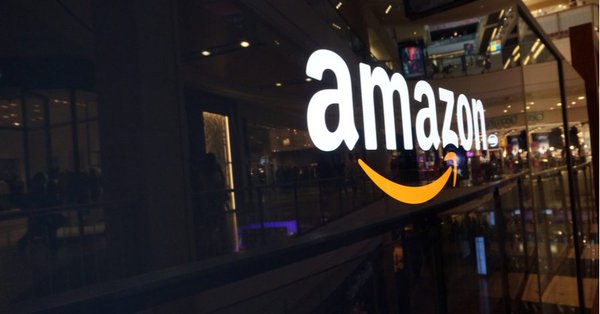It’s named after the largest river in the world, and its ambitions are just as big. It is sometimes hard to remember that “the everything store” began as a mail-order book store. These days, there doesn’t seem to be a part of our lives that Amazon isn’t part of, or trying to become a part of: from our groceries to our TV programmes and now healthcare, as announced on 28 June. The news for other, smaller (and there are very few businesses that aren’t smaller!) businesses can seem bleak.
But Greenlight’s research, compiled from over 200 digital marketers, paints a different picture. Only 32% of respondents say they have lost sleep worrying competition from Amazon will impact their business in the next 18 months. Of course, no-one is dismissing Amazon’s reach and power, but as our survey shows, despite the dire warnings in eCommerce publications and blogs, there are many people who aren’t that concerned. Or rather people are looking closely at ways to remain competitive, despite, or in some cases, because of Amazon.
Here are three ways to prevent Amazon from eating your lunch:
1) Using Amazon’s infrastructure
Smaller businesses are using Amazon as a springboard to launch into international markets – 38% of those surveyed thought this would be a way their company could work with Amazon. New balance, for example, is using the tech giant to provide international next-day delivery through their Prime service. Rather than being intimidated by Amazon’s size and infrastructure, retailers are utilising Amazon’s own logistics, by using them as a way to reach new sectors, or to try out new categories.
By using Amazon’s logistics, smaller businesses can ship items to Amazon’s warehouses and then make use of Prime delivery. In this way, smaller businesses are able to offer their customers the same value proposition as Amazon itself, without the initial investment.
It’s also helping brands such as Casio to fight against counterfeit items and brand misrepresentation though the Amazon Brand Registry.
2) Focusing on customer service
Equally, some companies have made the most of their differences with Amazon in order to compete with it. Ironically, automation, the very thing which has allowed Amazon to grow so quickly and efficiently, has also given it its greatest weakness – very poor customer service. 39% of respondents in our recent survey believed that providing better customer service was the best way to compete against Amazon.
No matter how sophisticated the technology, people still like to buy from people. Businesses need to have a physical face, a customer needs to feel that there is a real-life person out there who can help them. No-one wants just automation – we can see clearly that despite huge technological advances, customers still want that personal touch. People want to touch and feel before purchasing certain products. There is a whole shopping process that people still expect and enjoy, including store locations, a personal experience, human interactions.
Amazon Prime aims to make customers’ lives easier in most areas, but pre-sale it offers very little service apart from user-generated reviews. Trust of these however has been hugely damaged by the rise in fraudulent reviews. For companies who are happy to offer better customer service (or any customer service!), this can be a hefty advantage.
Lush is consistently ranked as one of the top brands for customer experience. One of the ways they do this is training their staff to recognise different customer types and tailoring their behaviour to that e.g. remembering customer names and interests of “amiable” customers. They also empower their staff and give them the freedom to go the extra mile.
3) Re-positioning as a destination brand
As with automation, so with scale – in some respects, Amazon’s immense size is as much of a weakness as it is a strength. For many retailers, Amazon simply sells too much stuff, and it is impossible to stand out from the crowd on that platform.
A large concern for several companies is Amazon taking over certain sales days. Our research shows that this was in fact a concern for 37% of respondents, more of a worry than Amazon’s competitive pricing (which concerned 33% of respondents) and logistical efficiency (31% of respondents). However, many brands want to be a destination, not a sales brand. By deciding not to sell with Amazon, they can re-position themselves effectively.
LVMH is on record to say they would not work with Amazon. It could be suggested that part of the reason for this is to protect their brand by being more exclusive and controlling of how their products are merchandised.
There is no denying the impact Amazon has had on the retail industry, and with its moves into B2B, food delivery, grocery and now healthcare, there is still reason to be nervous. But as we have shown, for other companies, there are still plenty of options and advantages, and hopefully now fewer sleepless nights!


